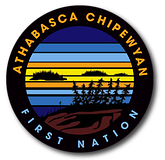 First Nations request for federal delay on approval for Shell’s tar sands Project granted
First Nations request for federal delay on approval for Shell’s tar sands Project granted
November 6, 2013, Fort McMurray, AB – Earlier this week the Canadian Environmental Assessment Agency (CEAA) announced that a federal decision on Shell Oil’s Jackpine Mine Expansion, a 100,000 barrel per day open pit tar sands mine expansion, would be delayed an additional 35 days. At the heart of this decision is the Athabasca Chipewyan First Nation who has been speaking out against the project since day one citing a variety of concerns relating to treaty and aboriginal rights as well as direct and cumulative environmental impacts.
In July 2013 the Joint Review Panel appointed to review the Jackpine Mine Expansion project granted a conditional approval laying out 88 non-binding recommendations. However, the Panel also made some remarkable findings including the following:
… the Project would likely have significant adverse environmental effects on wetlands, traditional plant potential areas, wetland-reliant species at risk, migratory birds that are wetland-reliant or species at risk, and biodiversity… in combination with other existing, approved, and planned projects, would likely have significant adverse cumulative environmental effects on wetlands; traditional plant potential area; old-growth forest; wetland-reliant species at risk and migratory birds; old-growth forest reliant species at risk and migratory birds; caribou; biodiversity; and Aboriginal traditional land use (TLU), rights, and culture.[i]
Many of the findings of the panel give way to serious concerns of breach of federal legislation including Treaty and Aboriginal Rights, and the protection of species at risk. Many groups, including the First Nation, were surprised the Panel justified the Project on the grounds that it would be in an area ‘in which the government of Alberta has identified bitumen extraction as a priority use’.[ii]
“We’re glad an extension was provided. It is clear that there is a lot of work to do before this project can meet the federal requirements for approval. However, we are disappointed the Minister only granted 35 day and not the full 90 days allowed. The amount of work that needs to be done to mitigate and accommodate impacts to our Nation seems almost impossible in only 35 calendar days. But we will make best efforts and hope that Canada does the same.”” said Chief Allan Adam of the Athabasca Chipewyan First Nation.
The ACFN raised concerns about the Project early on citing adverse impacts on Treaty and Aboriginal rights and title and difficulties with consultation and accommodation with the oil giant Shell.[iii] The hearings for the Project became one of the longest hearings seen for a tar sands project and included over 60,000 letters of support for ACFN position against the project. .
“The ACFN is taking a big risk challenging the status quo of project approvals and development in the region,” stated Crystal Lameman, Climate and Energy Campaigner of Sierra Club Prairie Chapter. “We support their arguments that are strongly rooted in the governments’ failure to protect species at risk and the biodiversity of the region and the Treaty and Aboriginal rights of the Nation,”
Many of the ACFN’s concerns were echoed and supported in the Panel Report itself, and most recently by the report of the Commissioner on Environmental and Sustainable development which, criticized Canada’s failure to meets legislative requirements under the Species at Risk Act stating ‘the findings are cause for concern.’ The report also noted that a new collaborative approach rooted in using sound management practices, transparency and strong engagement is necessary to achieve the results necessary to fulfill federal commitments and responsibilities.
ACFN’s requests that Canada take concrete, immediate steps to address impacts, rather than commit to future action, are supported by the Commissioner’s observation of “the wide and persistent gap between what the government commits to do and what it is achieving”.[iv]
Since the Panel Report we have repeatedly requested meetings with the Federal Ministers to address the extensive list of outstanding issues we have with Shell Oil’s application to develop this recognizably devastating project in our traditional land use areas. The Nation states their request for meetings with high level ministers have been denied and they have only had opportunities to reiterate their concerns and position to technicians with little or no authority to make the necessary decisions to move their concerns forward.
“We need real action and a game plan created in partnership that addresses our concerns,” asserts Adam . “At present we don’t feel that our issues are being taken seriously and the consequences for this governments inaction will be the annihilation of critical habitat for species at risk and other traditional resources, and the degradation of the Muskeg River and the Athabasca Delta, in our traditional homelands.”
The ACFN maintain their position that they are challenging these projects in the public interest and for the interest of all Canadians.
“The Muskeg and Athabasca Rivers drain into the Athabasca Delta, which remains one of the last remaining fresh water delta’s in the world and vital carbon sink that helps maintain atmospheric stability for the entire planet. As Denesuline people we are the stewards of this region and we will do what is necessary to ensure that it remains here for all future generations,” concluded Chief Adam.
-30-
For More information please contact:
Eriel Deranger, ACFN Communications Coordinator 780-903-6598
Crystal Lameman, Sierra Club Prairie Chapter 780-337-9262
[i] Executive Summary – Joint Review Panel Report, Shell Canada Energy, Jackpine Mine Expansion Project, Application to Amend Approval 9756, pg. 2 para. 9 http://www.ceaa.gc.ca/050/document-eng.cfm?document=90875
[ii]Executive Summary – Joint Review Panel Report, Shell Canada Energy, Jackpine Mine Expansion Project, Application to Amend Approval 9756; pg.2, para. 8 http://www.ceaa.gc.ca/050/document-eng.cfm?document=90875
[iii] Athabasca Chipewyan First Nation (ACFN) Technical Review – Jackpine Mine Expansion Project http://www.ceaa.gc.ca/050/documents_staticpost/59540/54129/ACFN_JPME_Main_Report_Oct_2010.pdf
[iv] 2013 Fall Report of the Commissioner of the Environment and Sustainable Development; The Commissioners Perspective and Chapter 6 – Recovery Planning for Species at Risk http://www.oag-bvg.gc.ca/internet/English/parl_cesd_201311_00_e_38670.html
